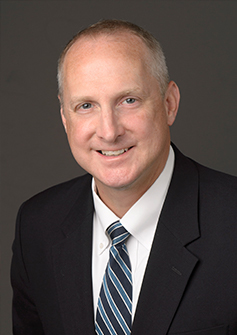November 17, 2022
Purdue symposium during ‘MitchFest’ will focus on free speech for advancing healthy civil discourse on university campuses

Glenn C. Loury, Nadine Strossen and Keith E. Whittington will be panelists for “Freedom of Inquiry and the Advancement of Knowledge.”
WEST LAFAYETTE, Ind. — Tolerance and free speech are messages taken very seriously at Purdue University. As a national leader on this topic, Purdue will host a Dec. 5 symposium, focusing on the vital role that open debate and civil discourse play in advancing a healthy campus culture of learning and engagement.
The panel discussion, titled “Freedom of Inquiry and the Advancement of Knowledge,” will be moderated by Steven Schultz, Purdue’s general counsel. Free and open to the public, the symposium is at 6 p.m. Monday, Dec. 5, in Stewart Center’s Fowler Hall and is part of “MitchFest,” a series of public events celebrating the legacy of retiring Purdue President Mitch Daniels.
Through President Mitch Daniels’ leadership, Purdue placed an emphasis on free speech in 2015. That year, Purdue became the first public university to adopt the Chicago Principles, a landmark declaration of the importance of freedom of expression in any university community.
 Steven Schultz
Steven Schultz
Download image
“At Purdue, we affirm and protect free speech not only because our First Amendment obligations as a public institution require us to do so, but because this commitment should be at the heart of every university’s mission,” Shultz said. “If some topics are considered closed for free inquiry and debate, that mission is undermined. But when we allow the free expression of opinions, even those with which many might disagree, we facilitate the process of truth-seeking that’s vital to the accumulation and dissemination of knowledge — the very essence of a university community.”
Scheduled to join Schultz on stage are leading free speech experts:
- Glenn C. Loury is the Merton P. Stoltz Professor of Economics at Brown University. He holds a bachelor’s degree in mathematics from Northwestern University and a PhD in economics from Massachusetts Institute of Technology. As an economic theorist, he has published widely and lectured throughout the world on his research. He also is among America’s leading critics on racial inequality. He has been elected as a distinguished fellow of the American Economics Association, as a member of the American Philosophical Society and the U.S. Council on Foreign Relations, and as a fellow of the Econometric Society and the American Academy of Arts and Sciences. His 1995 book “One by One, From the Inside Out: Essays and Reviews on Race and Responsibility in America,” won the American Book Award and the Christianity Today Book Award.
- Nadine Strossen is the John Marshall Harlan II Professor of Law, Emerita at the New York Law School and former president of the American Civil Liberties Union (1991-2008), who spoke at Purdue in February 2016. She is a senior fellow with the Foundation for Individual Rights and Expression (FIRE ) and a leading expert and frequent speaker and commentator on constitutional law and civil liberties who has testified before Congress. She serves on the advisory boards of the ACLU, Academic Freedom Alliance, Heterodox Academy and the National Coalition Against Censorship. The National Law Journal has named Strossen one of America’s “100 Most Influential Lawyers.” Her 2018 book “HATE: Why We Should Resist It With Free Speech, Not Censorship” has been selected as the common read by Washington University in St. Louis in 2019 and Washburn University in 2022.
- Keith E. Whittington is the William Nelson Cromwell Professor of Politics at Princeton University, chair of the Academic Freedom Alliance and a visiting fellow at the Hoover Institution. He works on U.S. constitutional history, politics and law, and on American political thought. Whittington is the author of “Repugnant Laws: Judicial Review of Acts of Congress From the Founding to the Present” and “Speak Freely: Why Universities Must Defend Free Speech,” among other works. He has been a visiting professor at Harvard Law School, Georgetown University Law Center and the University of Texas School of Law, and he is a member of the American Academy of Arts and Sciences. He served on the Presidential Commission on the U.S. Supreme Court. He completed his undergraduate work at the University of Texas at Austin and PhD in political science at Yale University.
Purdue placed an emphasis on free speech in 2015, when it became the first public university to adopt the Chicago Principles, a landmark declaration of the importance of freedom of expression in any university community. Purdue reinforced its commitment in 2016 by incorporating a dedicated module on freedom of expression during Boiler Gold Rush, its weeklong student orientation program.
Purdue’s pledge continues to gain national attention. The latest recognition: a No. 3 ranking in 2022 for campus free speech from the College Pulse/FIRE survey. Purdue climbed three spots from 2021 and highlights its ongoing emphasis on the importance of the topic as vital to its mission as a land-grant institution. In the latest College Pulse/FIRE ranking, Purdue trailed only the University of Chicago, which developed the Chicago Principles, and Kansas State University. Mississippi State and Oklahoma State universities rounded out the top five.
Moreover, Purdue and the University of Chicago are the only Association of American Universities members in the top 10. Purdue remains the highest-ranking member of the Big Ten (next is the University of Maryland at No. 20) and leads all Indiana-based schools (the University of Notre Dame is next at No. 31 on the overall listing).
As Purdue’s chief legal officer, Schultz advises the board of trustees, the president and senior administrators on issues of law, governance and risk management and oversees representation of the university in all legal matters. In addition to developing and leading its internal legal operation since joining Purdue in 2013, Schultz was one of the architects of the Boiler Gold Rush free speech orientation module, which he still moderates each year.
Before coming to Purdue, he practiced as a corporate attorney and served as general counsel for several firms in the private sector. Schultz was chief counsel for Daniels when he was governor of Indiana. An Indianapolis native, Schultz received an undergraduate degree in history and political science from Butler University and law degrees from Yale and Cambridge (Trinity Hall) universities.
About Purdue University
Purdue University is a top public research institution developing practical solutions to today’s toughest challenges. Ranked in each of the last five years as one of the 10 Most Innovative universities in the United States by U.S. News & World Report, Purdue delivers world-changing research and out-of-this-world discovery. Committed to hands-on and online, real-world learning, Purdue offers a transformative education to all. Committed to affordability and accessibility, Purdue has frozen tuition and most fees at 2012-13 levels, enabling more students than ever to graduate debt-free. See how Purdue never stops in the persistent pursuit of the next giant leap at https://purdue.edu/.
Writer and Media Contact: Phillip Fiorini, pfiorini@purdue.edu, 765-430-6189

